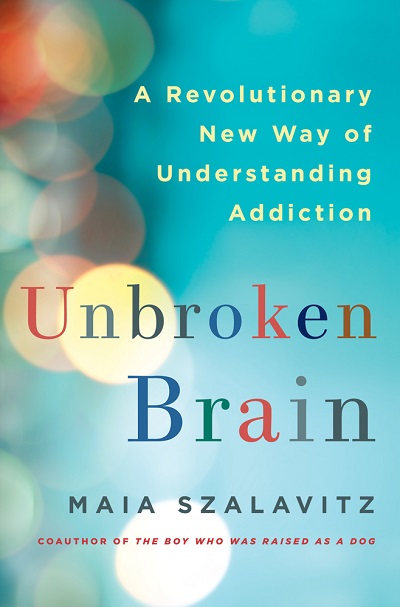As a person recovering from alcohol use disorder for 3 and 1/3 years, I acknowledge that, early on, I made the mistake of believing my personal experience with what was helpful could and should be replicated. I realized that my sample size of one is absolutely not sufficient data from which to draw inferences about a larger population, especially given the complexity and variability of addiction.
 Maia Szalavitz expresses this fallacy in logic in her article on Prince’s death: “I thought that simply having experienced addiction qualified me as an expert and incorrectly relied on anecdote, not data.” To correct my own error, I have relentlessly studied the research on addiction to grow evidence-based expertise.
Maia Szalavitz expresses this fallacy in logic in her article on Prince’s death: “I thought that simply having experienced addiction qualified me as an expert and incorrectly relied on anecdote, not data.” To correct my own error, I have relentlessly studied the research on addiction to grow evidence-based expertise.
That’s been a miserably difficult task. I’ve written extensively on my blog about my inability to find consensus in the literature about what addiction is and what effectively treats it. What I have found often plunges me into despair.
According to the definition used in addictions treatment from the American Society of Addiction Medicine (ASAM), addiction has “characteristic bio-psycho-socio-spiritual manifestations.”
Wikipedia defines spirituality as how one seeks meaning.
Did I become addicted to alcohol because my method of seeking meaning has been flawed?! Half a century of “Know thyself“and “The unexamined life is not worth living” and it was all wrong?! According to ASAM, it must have been. Because there I was, unable to stop drinking. The sorrow, the grief, the shame – unbearable! And now here I am, wishing I could drink.
Criticizing the ASAM definition, Maia Szalavitz writes in Why the “Disease Model” Fails to Convince Americans That Addiction Is a Health Issue, “The ‘spiritual’ part is something no other medical specialty feels compelled to mention in its official documents.”
What world have I fallen into? Why doesn’t anyone know what’s happening and what to do about it? Melted Dali clocks are everywhere. I’ve never been more frightened, more uncertain, more disoriented. How am I to save myself from addiction if no one knows what to do? What does the science say?
The science is in – comprehensively reported in the just-released book by Maia Szalavitz, Unbroken Brain: A Revolutionary New Way of Understanding Addiction. Finally, someone understands what abstinence has been like for me: “I felt utterly stripped of safety and love…what tormented me most wasn’t the nausea and chills but the recurring fear that I’d never have lasting comfort or joy again.” (34)
I cried with relief when I read that. And I cried a few more times, but primarily felt my spirits and hope rise as I read Unbroken Brain. Szalavitz braids together her personal narrative, the science of addiction, and a call to action to replace experience-based and belief-based treatment with evidence-based treatment. Whew, yes, let’s do that.
Whatever term one uses for addiction – disease, disorder, illness – I didn’t make this happen to myself through moral or “spiritual” failing. I’m released from the fruitless, desperate search to figure out what I did wrong so I don’t do it again and return to drinking. My job is to keep figuring out what helps me stay abstinent from alcohol – the treatment I need, not the one for all.
. . . . .
I am part of a local community group in the Blacksburg, Virginia area reading Maia Szalavitz’s Unbroken Brain: A Revolutionary New Way of Understanding Addiction. We’re compiling a list of her recent publications and interviews here. If you would like to join us, please contact me and I’ll invite you to our discussion meetings.
Last updated 1/12/17


Anne:
My experience (20+ years without a drink) tells me that what works for me, works for me. It is not and cannot be universal, though parts of it might apply to somebody else. Hence, my willingness to share in a limited way with anyone who asks, “How do you do that?” I always begin with the caveat, “This may not work for you, but it has for me.”
This is a difficult disease, one not easily defined, corrected or understood. Scientists want clear definition and I’m not sure alcoholism or any other addiction provides that. Addiction can be arrested by various means, which basically boil down–at least initially–to two simple elements: don’t drink and get some help. I have read the science and like so much science, it is contradictory, confusing and often useless to me, a layman. It raises confusing questions and what I need less than a drink is more confusion.
I want answers, simple answers, actions that work. I am willing to do the difficult task of infusing my daily life with constant reminders of who/what I am and reacting positively to that, of surrounding myself with people who are successful at living and willing to advise, of refusing to think positively about that which nearly killed me (and perhaps others close to me). “Euphoric recall” is reserved for those parts of my life that deserve to be recalled euphorically. Alcohol consumption is not among them.
The basic suggestion from my AA sponsor some years ago that I needed to take responsibility for everything in my life, that I needed to look at my life as it is–not as I would have it be–and to face the challenges that are real and not imagined has been elementary in my own recovery.
Recovery is hard. It is also immensely rewarding on a daily basis.
Dan Smith